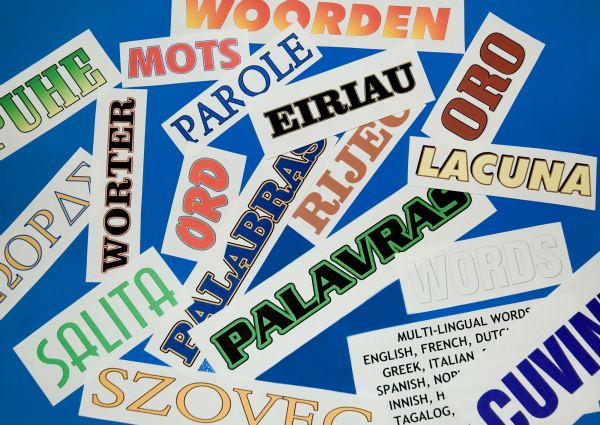International travel can be uncomfortable for people because of a belief that a language barrier will keep them from getting around and having a good time. It’s one of the travel fears cited for traveling in non-English speaking countries.
 Unlike most of the rest of the world, average Americans only speak English. We may have taken a couple years of foreign language study while in school, but that’s often not enough for travel fluency. I find myself in that same situation. While at one time I was fluent in Spanish, my non-use of the language now has me muttering and groping for the right word or phrase in a conversation.
Unlike most of the rest of the world, average Americans only speak English. We may have taken a couple years of foreign language study while in school, but that’s often not enough for travel fluency. I find myself in that same situation. While at one time I was fluent in Spanish, my non-use of the language now has me muttering and groping for the right word or phrase in a conversation.
I’ve found that some effort on my part, part English and part language of the country I’m traveling in, along with some pointing and gesturing, usually does the trick. Since I believe that one of the highlights of international travel is the experiencing of a different culture, I consider it my obligation to work on communication in the home language.
On my trip to Sicily our group of intrepid travelers were trying to drive to a little seaside community where we knew there were some great little local restaurants. Try as we did, we couldn’t seem to navigate the roads to get there. As afternoon turned into evening and then darkness our frustration grew. We parked the car in a small town and walked around, hoping we could find someone who could give us directions.
Just as we were getting ready to give up, I noticed a couple ushering out some customers and starting to close up their store (a home construction store offering fixtures and designer goods). I approached the couple and asked if they spoke any English. To my surprise, the man replied yes and asked how he could help. The others caught up with me and we got lots of information about where we should go. The couple was so concerned that we get where we wanted to go, and that it be a good experience, that they drove there and had us follow in our car. Once to the little town, they even introduced us to some of the staff at the restaurant.
The moral of the story is that not only should you not let your frustration get in the way of trying to ask for assistance, but that your lack of language skills can often result in making memorable travel connections with locals.
Still, there are situations in your travels when you really must find someone who speaks English. If that’s the case, here are some suggestions on how to locate someone.
- Large hotels: Most large hotels cater to a diverse traveling population, and consequently have staff that speak a variety of languages. English is sure to be one of them. If in doubt, look for American chain hotels (Hilton, Marriott, and the like). Even if you’re not staying in the hotel, the front desk staff or concierge will likely help you out.
- College or Universities: Since students are often required to learn English at university, you’ll often find young people far more fluent in English than their parents. Even if they’re not fluent, you’ll usually find someone eager to practice their language skills.
- Youth hostel: This is sort of a combination of the hotel and college approach and combines youth and cultural diversity.
- Internet Cafe: Usually a hang out for travelers trying to catch up on news and information from home, chances are good that “home” to someone will be an English speaking country. Many times the staff will be multilingual as well.
- Online: If you’ve built up a large social media network, you can send out a request for help and information. It’s amazing how quickly answers and information gets exchanged. It takes time and effort to build up a network of substantial reach, so start building your community now.
- Police: City police in most larger cities and towns will have someone who speaks English. In major cities, with heavy American tourism, most everyone on the force will.
- Ex-Pat community: Some cities and regions have large ex-patriot communities. Do some research before leaving home, and take along a list of ex-pat clubs, hangout (restaurants and bars), etc. You may not want to spend your entire vacation with people from “back home,” but having these English speaking contacts can help out in an emergency.
- Banks: Whether it’s an affiliate of a U.S. bank, or a local bank that specializes in banking for an ex-pat community, you’ll find someone who can speak English.
- Large Department Stores: Only an option in larger cities, but I’ve always been able to communicate in English and get information at an upscale shop.
- At the airport or train station: The transportation hubs have lots of visitors passing through. Someone will speak English. Try the traveler service desk, foreign currency exchange, airport police, or information desk. In smaller locations you may have to ask several times, but you will eventually find someone who speaks English.
Obviously, many of these options work better in larger cities and towns and in many tiny villages you probably won’t find any of them available. When you need help, however, this list is a good starting point and you can adapt based upon your actual location.
Where do you look for help when you need an English-speaker?

